Is the European project falling apart?
- Published
- comments
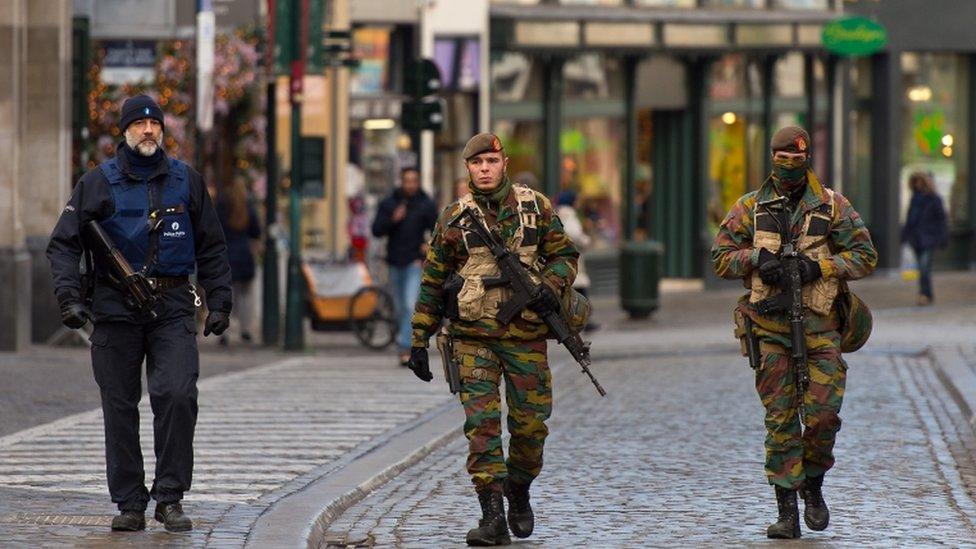
Police and soldiers on the streets of Brussels after the terror attacks in Paris were linked to the city
An unwinding rarely has a start date. It settles in over time. It is an erosion, deceptive, slow at first, and then it is all around you; old certainties crumbling; the believer's glint dulled; the claim on destiny weakened.
In just a matter of months, the idea of Europe has been unwinding, buffeted by successive crises; the Greek drama, the columns of migrants; the terror attacks.
So how does the unwinding reveal itself?
It can be glimpsed in the edginess of European officials.
"I'm not going to say today that (Europe) is going to be destroyed," said Frans Timmermans, external, Vice President of the European Commission, "but it is not indestructible."
It can be heard, too, in the comments of the politicians lining up in the confessionals: Sweden, declares its prime minister, had been "naive" about Islamist extremists.
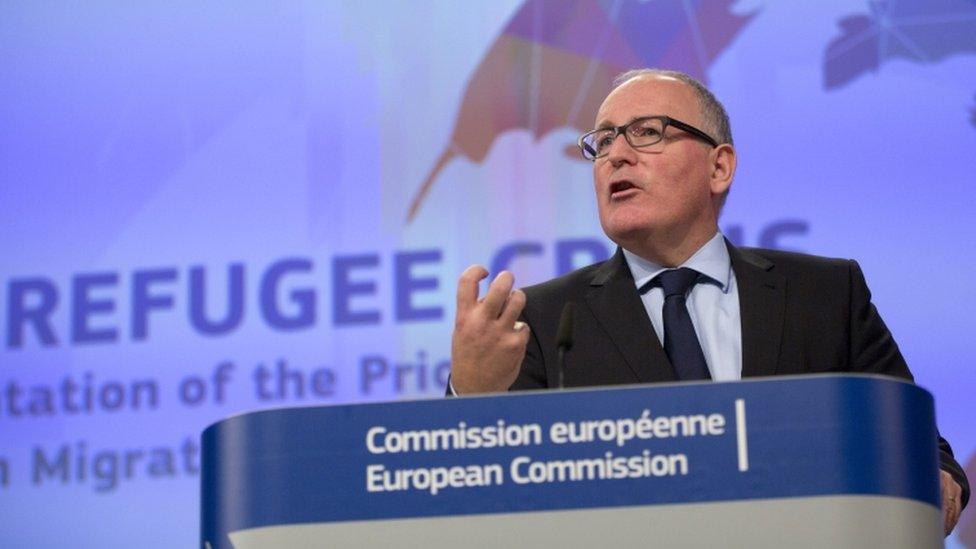
Frans Timmermans warned that Europe was not indestructible
It can be seen in the shaking of the EU's foundation stones: "Let there be no doubt," said Donald Tusk, external, the President of the European Council, "the future of Schengen is at stake."
It is an era defined by the stripping away of illusions.
Greece was saved in the summer but unconvincingly. Its debt remains unsustainable, a reckoning lies ahead.
The suggestion that Greece needed time out from the eurozone destroyed the belief that membership of the single currency was irreversible.
The terror attacks in Paris exposed layers of deceit and wishful thinking.
Europe's borders were not secure.
The extremists had moved around Europe's passport-free borders - guaranteed under the Schengen agreement - undetected.
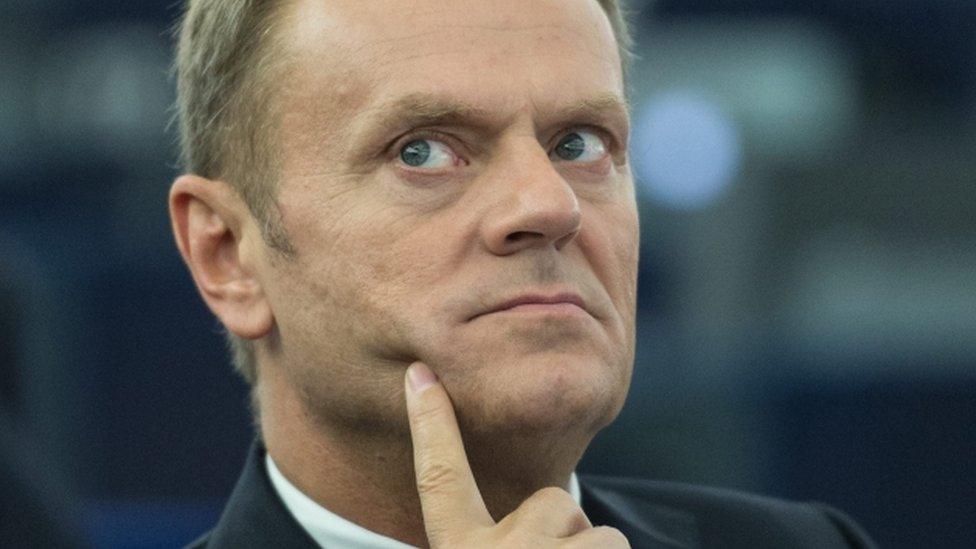
Donald Tusk warned the Schengen area was at risk
They even bragged about how easy it was. Several of them had travelled back and forth to Syria.
Schengen was more than just an agreement; it was an article of faith that there would be freedom of movement between 22 of the EU's member states.
But recent weeks have laid bare the flaws. Returning citizens with EU passports were hardly ever checked against watch lists or security data bases.
Passenger name records for flights between member states were not kept.
The European Parliament had been scrapping over this for years.
French Interior Minister Bernard Cazenove said "not a single French citizen, not a single EU citizen will understand why the Parliament continues to block this measure."
But civil liberties trumped security.
It was an open secret that both Italy and France waved through migrants; many were neither fingerprinted nor registered.



And then there was Brussels from where several of the Paris attackers came.
For years it had been known as a centre of radicalism, but its intelligence service was underfunded.
It had recruited few Arabic speakers.
Investigations had to contend with six different police authorities.
An estimated 500 jihadists had travelled to Syria; that's more than any other European country.
The French say they did not receive the intelligence they would have expected from Brussels.
Change at last
Now belatedly change is coming.
In Belgium, they are discussing taking away passports from people who join Islamist militants.
Even before the Paris attacks, Europe's discomfort had deepened with the migrant crisis.
For Angela Merkel this was the latest great test of the European project; refugees were to be welcomed as a reflection of European values.
She was first baffled and then angered by the refusal of other countries to see it that way. They resisted the burden-sharing of quotas.
The attacks in Paris did have a link with the refugee crisis.
Most mainstream politicians correctly resisted the suggestion that migrants were potential terrorists but the fingerprints of two of the Paris bombers were recorded at a checkpoint in Greece in October.
The former chief of French intelligence said, external: "It is obvious now that among the migrants there are terrorists."
Other politicians began to question how tens of thousands of people - unregistered and undocumented - were moving through Europe.
"How had this been allowed to happen?" asked one foreign minister.
The mood of mistrust deepened when Angela Merkel's finance minister Wolfgang Schaeuble seemed to attack the chancellor by talking about "a rather careless skier", external causing avalanches.
The polls indicated that voters no longer trusted Europe to deliver security.
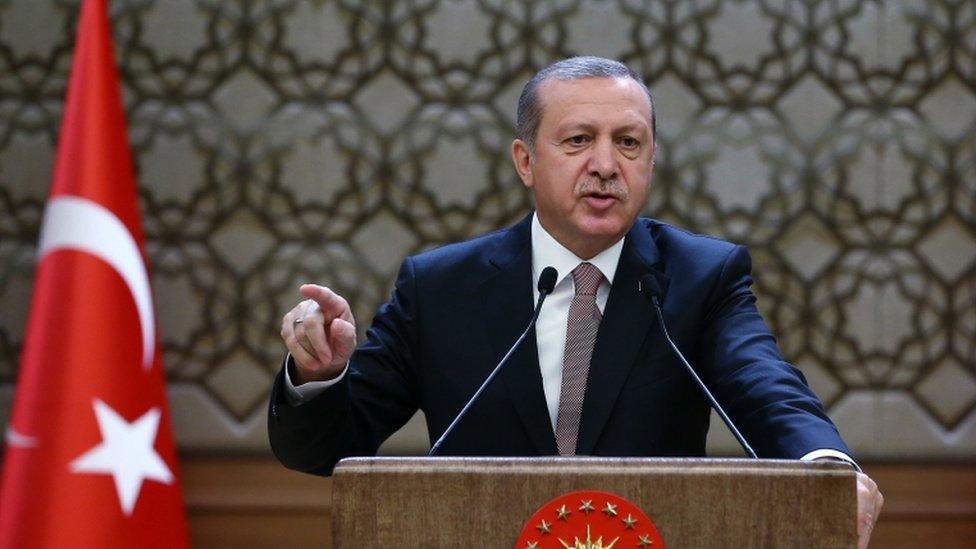
Europe is keen to strike a deal with Turkey's President Erdogan
And so gradually country after country reinstated border controls.
It rattled the European Commission. Its President Jean-Claude Juncker warned that, external "if the spirit of Schengen leaves us forever and leaves our hearts, we'll lose more than the Schengen agreement. A single currency doesn't make sense if Schengen fails."
Angela Merkel, desperate to stem the flow of refugees, warned that unless the refugees were distributed throughout Europe there couldn't be open borders.
Many of her colleagues believe her resistance to establishing "upper limits" is unsustainable.
She had to stand on stage and watch her coalition partner tell her that "her big task... would not be achievable in the long run if we don't get an upper limit". Her interior minister has said: "Europe should set a limit."
New realism
Europe, stripped of some of its illusions, is already engaging in a new realism.
The Europe of values will shortly try to clinch a deal with the increasingly authoritarian President of Turkey Recep Tayyip Erdogan.
The harassment of Turkish journalists will be overlooked.
The suspicion that Turkey enabled scores of foreign fighters to cross its border into Syria and join the Islamic State will be set aside.
Europe is considering paying Ankara €3bn , externalto reduce the number of refugees.
In this new world France is contemplating a loose alliance with President Putin as part of a broad coalition to defeat IS.
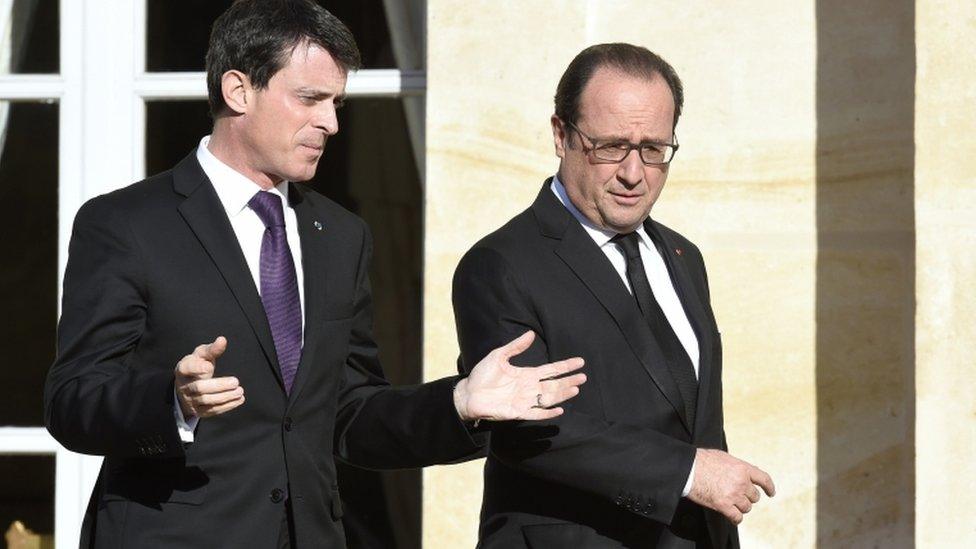
Manuel Valls (left) has adopted a hard line on refugees
Plenty of those who support the deeper integration of Europe now say that officials and leaders allowed dreams to get ahead of reality.
Quite simply, if Europe cannot provide security then voters will demand the nation states step back in. The old slogans will not suffice.
A harder-headed Europe will have to emerge that protects people and delivers jobs and security.
In the past two days, French Prime Minister Manuel Valls gave his response to Angela Merkel's open-door policy towards refugees.
"We cannot," he said, "accommodate any more refugees in Europe, that's not possible.
"If we don't do that, the people will say, 'Enough of Europe.'"